Find Help
More Items From Ergsy search
-
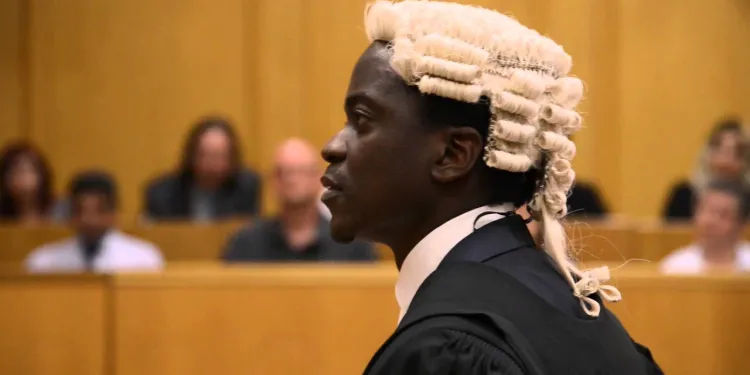
The Crown Court
Relevance: 100%
-
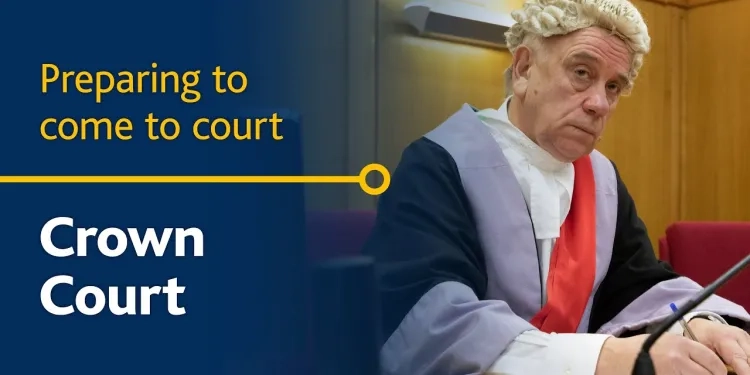
Crown Court - Preparing to come to court
Relevance: 91%
-
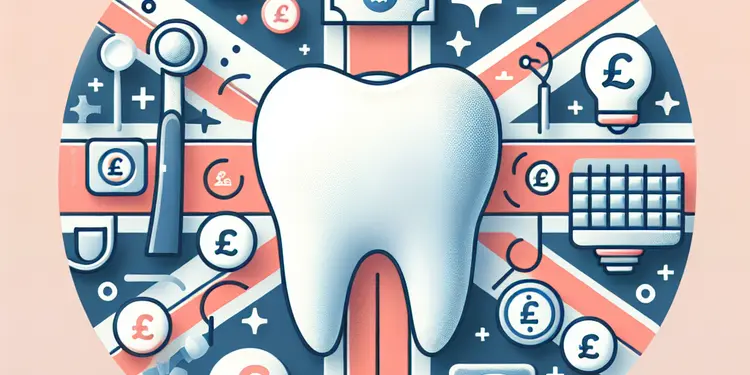
What is the difference between veneers and crowns?
Relevance: 53%
-

How quickly can a criminal case come to court?
Relevance: 42%
-

Is there a standard minimum or maximum time for a case to reach court?
Relevance: 40%
-

How does the type of case impact the court schedule?
Relevance: 40%
-

Court of Protection
Relevance: 39%
-

Can the Attorney General override a court decision?
Relevance: 39%
-
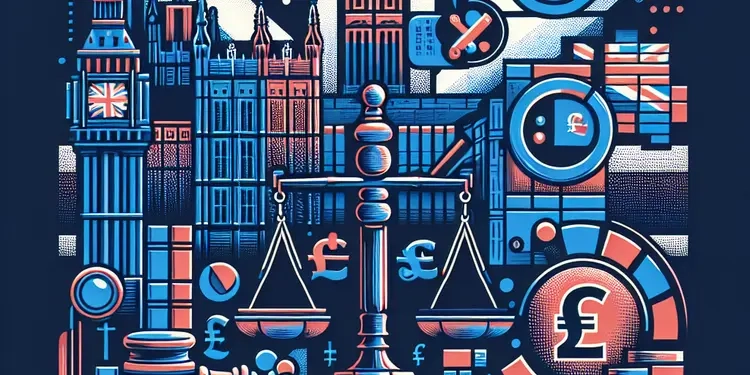
How long does it take for a case to come to court?
Relevance: 37%
-
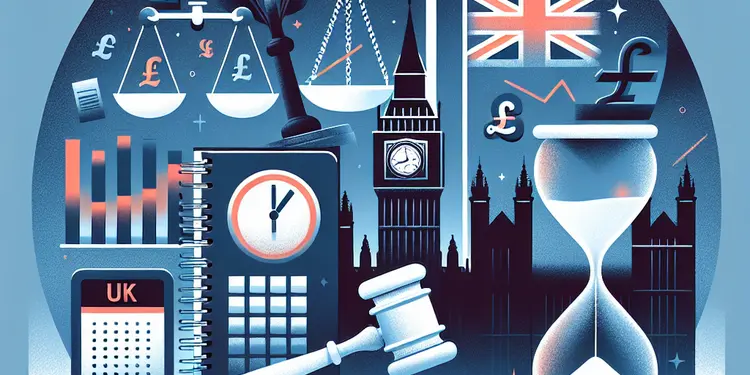
How do court holidays affect the timeline for a case to come to court?
Relevance: 37%
-
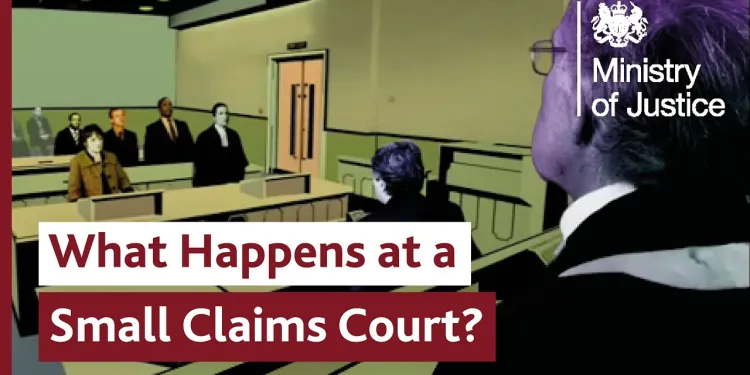
What Happens at Small Claims Court? Making a Court Claim for Money
Relevance: 36%
-
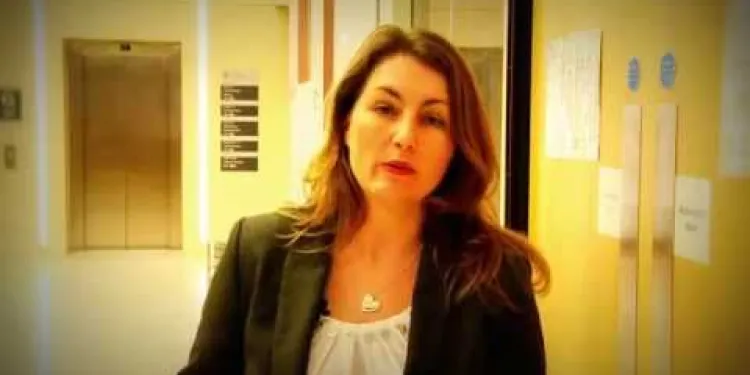
The Family Court without a Lawyer
Relevance: 35%
-
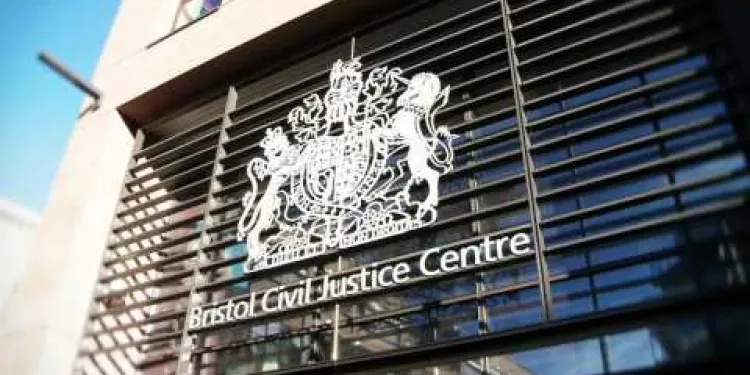
The Family Court without a Lawyer - Video 1 of 3
Relevance: 34%
-
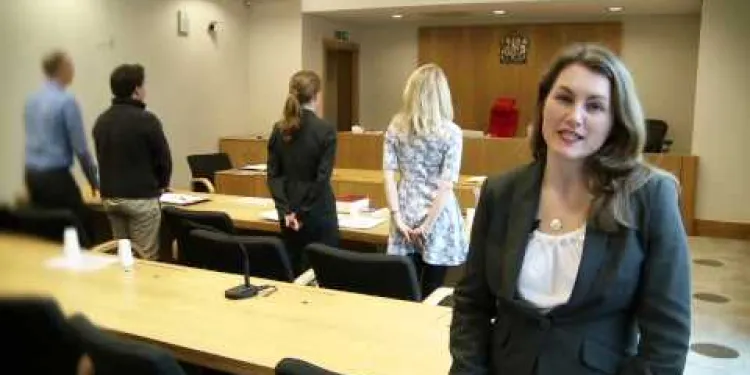
The Family Court without a Lawyer - Video 2 of 3
Relevance: 34%
-
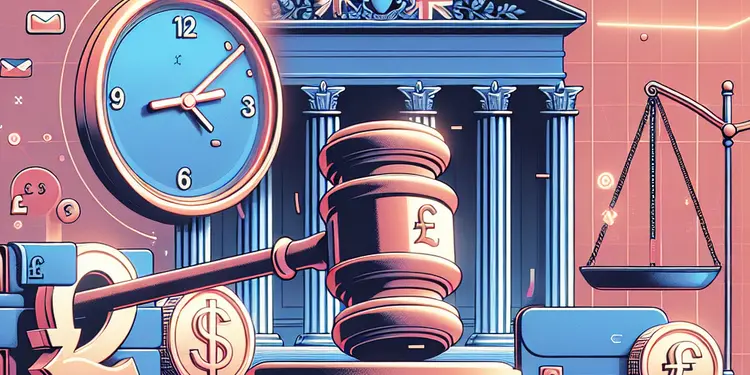
Why might a court date be delayed?
Relevance: 34%
-
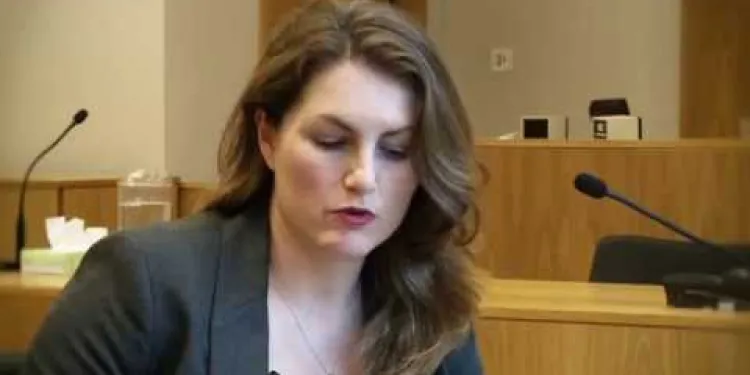
The Family Court without a Lawyer - Video 3 of 3
Relevance: 34%
-

Does the location of the court affect case timing?
Relevance: 33%
-
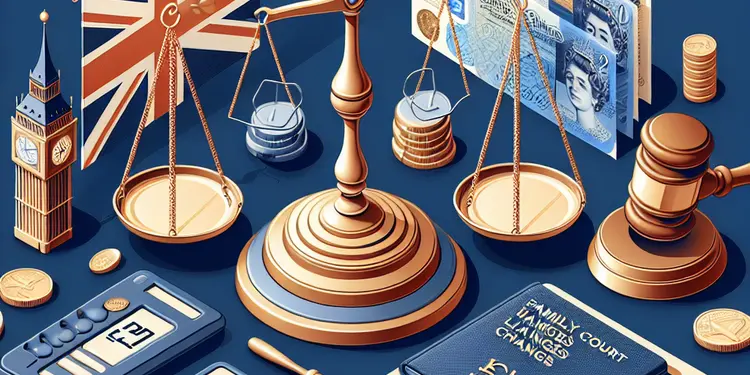
What are the changes to Family Court Law in 2026?
Relevance: 32%
-

Magistrates in the Family Court: A Public Law Case
Relevance: 32%
-
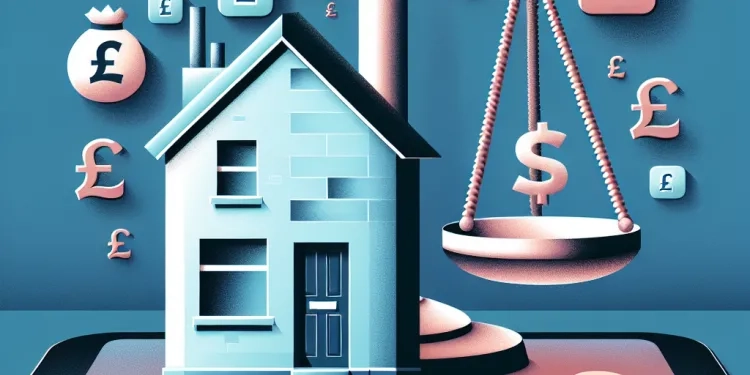
Can I appeal a court's eviction decision?
Relevance: 32%
-

Magistrates in the Family Court: A Private Law Case
Relevance: 32%
-

How to represent yourself in family court in England and Wales
Relevance: 31%
-
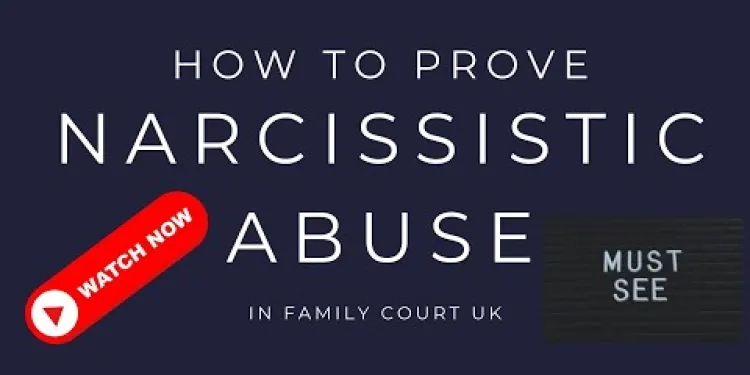
How To Prove Narcissistic Abuse In Family Court UK
Relevance: 31%
-

How can I prepare for an eviction court hearing?
Relevance: 31%
-
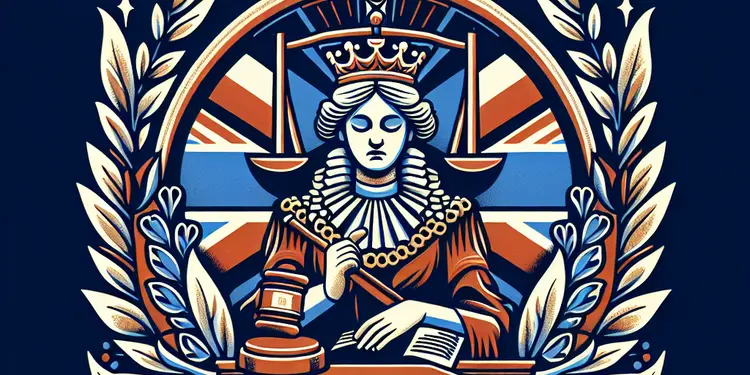
What steps can a party take to expedite a court date?
Relevance: 31%
-

What factors affect the time it takes for a case to come to court?
Relevance: 31%
-

Can legal representation speed up the process of a case coming to court?
Relevance: 30%
-

How does a backlog in the court system affect case scheduling?
Relevance: 30%
-
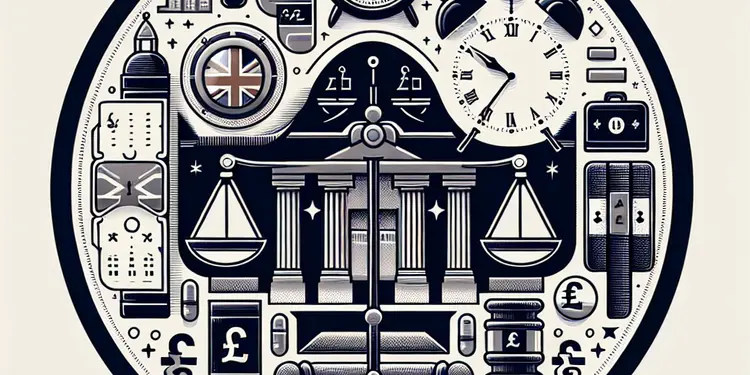
What is a typical timeline for a civil case to come to court?
Relevance: 30%
-

Supreme Court Delivers Key Ruling on Electoral Reform
Relevance: 30%
-

What digital services have been introduced in family courts in 2026?
Relevance: 29%
-

What impact can unexpected events have on the court scheduling of a case?
Relevance: 29%
-
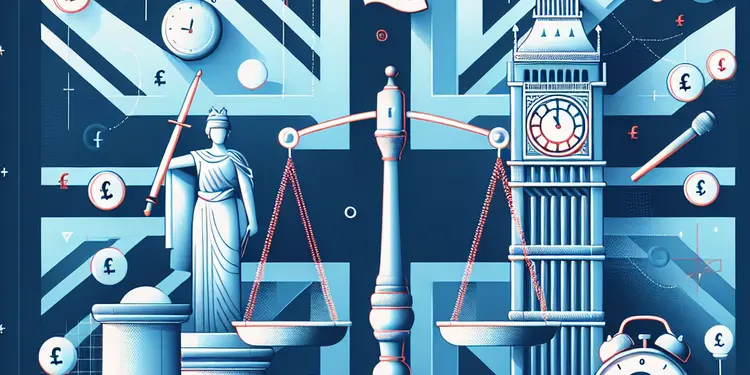
Does the jurisdiction affect how long it takes for a case to come to court?
Relevance: 29%
-
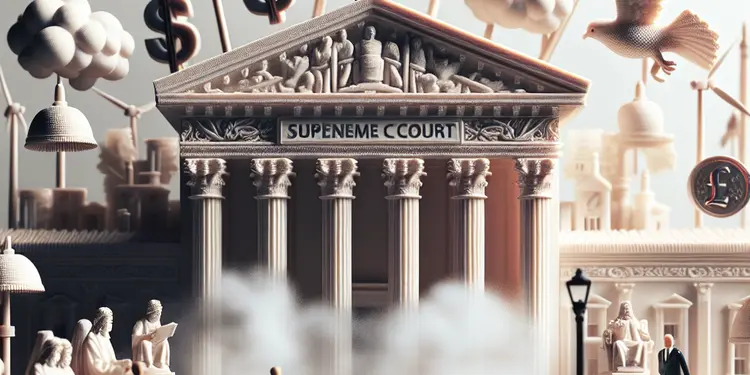
Supreme Court to Hear Landmark Case on Environmental Regulations
Relevance: 29%
-
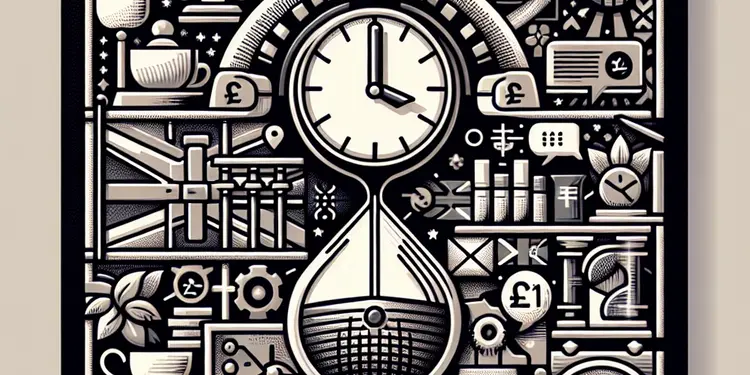
Can mediation or settlement efforts impact how long it takes to get to court?
Relevance: 29%
-

How does the availability of judges affect the timing of a case coming to court?
Relevance: 28%
-
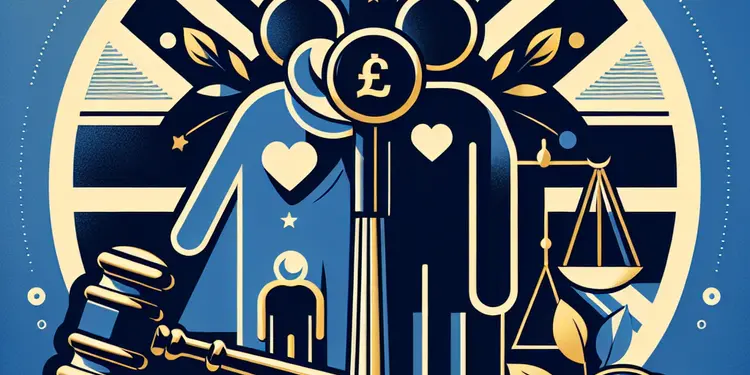
Are there modifications to legal aid access in family court for 2026?
Relevance: 28%
-

What are the new protocols for domestic violence cases in family court in 2026?
Relevance: 28%
-
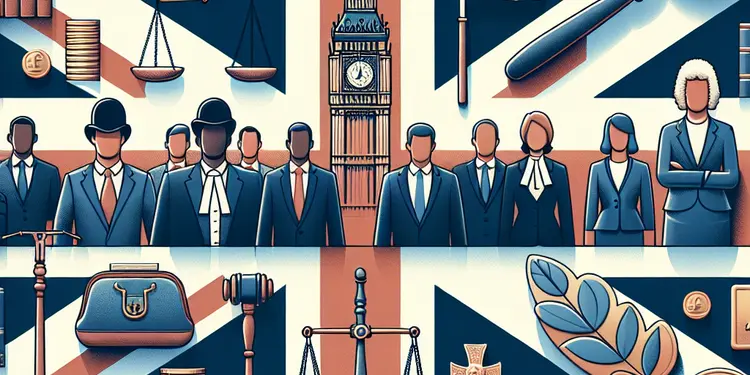
What is the difference between the Attorney General and the Solicitor General in the UK?
Relevance: 28%
-
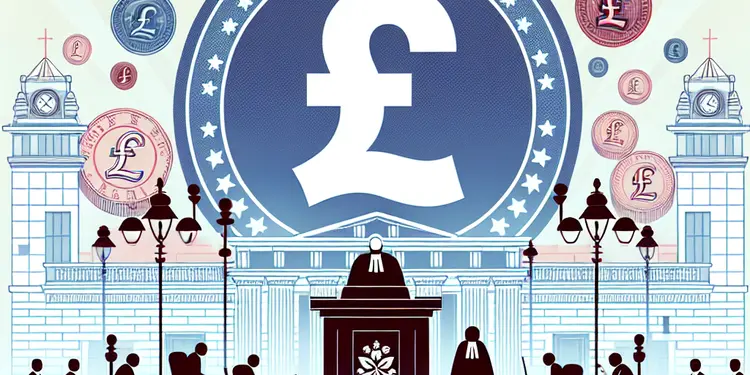
Does the defendant's plea impact how long it takes for a case to come to court?
Relevance: 28%
The Crown Court
The Crown Court in the United Kingdom is a principal part of the judiciary system, which handles serious criminal cases. It is crucial for ensuring that justice is served in cases that require more careful deliberation than can be afforded in lower courts. Below, we outline the structure, function, and significance of the Crown Court in the UK legal system.
Structure of The Crown Court
The Crown Court falls under the jurisdiction of the Senior Courts of England and Wales. It operates in various locations across the country. The court is presided over by judges, including High Court judges, Circuit judges, and Recorders. Cases often involve juries who are responsible for determining the guilt or innocence of the defendant, while the judge provides guidance on points of law and administers sentencing upon conviction.
Types of Cases Heard
The Crown Court deals with several types of cases including:
- Trials for indictable offences such as murder, rape, and robbery
- Sentencing of defendants committed from the Magistrates' Court
- Appeals against decisions made in the Magistrates' Court
The complexity and severity of these cases necessitate the specialized legal procedures utilized in the Crown Court.
Procedure and Proceedings
Proceedings in the Crown Court begin with a preliminary hearing, where the charges are read, and pleas are entered. If the defendant pleads not guilty, a trial date is set. During the trial, evidence is presented by both the prosecution and defense. Witnesses may be called for examination, and closing arguments are made before the jury is tasked with reaching a verdict. If found guilty, the defendant will be sentenced by the judge.
Significance in the Judicial System
The Crown Court plays a vital role in the UK judicial system by dealing with serious criminal matters that require thorough examination and deliberation. Its decisions can have far-reaching implications, not only for the individuals involved but also for the community's perception of justice and the effectiveness of the legal system. By ensuring that complex cases are handled with due diligence, the Crown Court helps maintain the rule of law and upholds public confidence in legal processes.
Overall, the Crown Court represents a critical mechanism for delivering justice and safeguarding societal standards against serious criminal conduct in the United Kingdom.
The Crown Court
The Crown Court is an important part of the UK legal system. It deals with big and serious criminal cases. These cases need more time and attention than smaller courts can give. Below, we will explain how the Crown Court works and why it is important.
Structure of The Crown Court
The Crown Court is part of the Senior Courts of England and Wales. It works in many places across the country. Judges run the court. There are different types of judges, like High Court judges and Circuit judges. Cases often have juries. Juries decide if the person did the crime or not. The judge helps them understand the law and gives the punishment if the person is found guilty.
Types of Cases Heard
The Crown Court handles these cases:
- Trials for serious crimes like murder, rape, and robbery
- Sentencing people sent from the Magistrates' Court
- Appeals when someone disagrees with a decision from the Magistrates' Court
These cases are hard and serious, so they need special legal rules in the Crown Court.
Procedure and Proceedings
Crown Court cases start with a hearing. Here, the charges are explained. The person accused says if they are guilty or not guilty. If they say not guilty, there will be a trial. During the trial, both sides show their evidence. They might bring witnesses to speak. Then, they make their closing arguments. The jury listens to everything and decides if the person is guilty. If guilty, the judge gives the punishment.
Significance in the Judicial System
The Crown Court is very important in the UK for handling serious crimes. It makes sure these cases are looked at carefully. The decisions made can affect everyone involved. They also show the community that the legal system is fair and works well. By taking time on difficult cases, the Crown Court helps keep the law strong and makes people trust the legal process.
In short, the Crown Court is key to giving justice and keeping society safe from serious crimes in the UK.
Frequently Asked Questions
What is the Crown Court?
The Crown Court is a court in the United Kingdom that handles serious criminal cases, including indictable offences and appeals from magistrates' courts.
What types of cases are heard in the Crown Court?
The Crown Court hears serious criminal cases, including indictable offences like murder, rape, and robbery. It also handles cases sent up from magistrates' courts for sentencing and appeals from magistrates' decisions.
Who presides over cases in the Crown Court?
Judges, who may be High Court judges, circuit judges, or recorders, preside over cases in the Crown Court. More serious cases are heard by High Court judges.
What is a jury's role in the Crown Court?
In the Crown Court, a jury of 12 members of the public decides the guilt or innocence of the defendant based on the evidence presented during the trial.
How can someone be summoned to be a juror in the Crown Court?
Potential jurors are randomly selected from the electoral register and then summoned to serve in the Crown Court.
What happens if a defendant pleads guilty in the Crown Court?
If a defendant pleads guilty, the Crown Court judge will proceed to sentencing the defendant without a trial.
What is an 'indictable offence'?
An indictable offence is a serious criminal offence that must be tried in the Crown Court. Examples include murder, rape, and aggravated burglary.
What is the difference between the Crown Court and Magistrates' Court?
The Magistrates' Court handles less serious offences, while the Crown Court deals with more serious criminal cases. Magistrates' Courts can transfer cases to the Crown Court for trial or sentencing.
Can defendants appeal a Crown Court decision?
Yes, defendants can appeal a Crown Court decision to the Court of Appeal if they believe there has been a legal error or if the sentence was too harsh.
What is a Pre-Trial Hearing in the Crown Court?
A Pre-Trial Hearing in the Crown Court is a hearing where preliminary matters are discussed before the trial starts. This may include legal arguments, procedural issues, and the setting of trial dates.
How long does a Crown Court trial typically last?
The length of a Crown Court trial can vary widely depending on the complexity of the case, but they generally last several days to a few weeks.
Do all criminal cases go to the Crown Court?
No, only serious or indictable offences and some cases from the Magistrates' Court are tried in the Crown Court. Less serious offences are usually dealt with in the Magistrates' Court.
What is the role of a solicitor or barrister in the Crown Court?
Solicitors and barristers represent the defendant and the prosecution in Crown Court. Solicitors prepare the case, and barristers present the case in court.
What are the possible outcomes of a Crown Court trial?
The possible outcomes of a Crown Court trial include a verdict of guilty or not guilty. If found guilty, the defendant will be sentenced. If not guilty, the defendant will be acquitted.
What should someone do if they need legal advice for a Crown Court case?
If someone needs legal advice for a Crown Court case, they should contact a solicitor who specializes in criminal law. Legal aid might be available for those who qualify.
What is the Crown Court?
The Crown Court is a special place where serious cases are heard.
Judges and juries help decide what happens. A jury is a group of people who listen and help decide if someone did something wrong.
If you need help reading, you can use tools like pictures or simple words. You can also ask someone to explain it to you.
The Crown Court is a special court in the United Kingdom. It deals with big and serious crimes. It also helps when people want to change a decision made by a smaller court called the magistrates' court.
What kind of cases go to the Crown Court?
The Crown Court looks at serious cases. Here are some examples:
- Very bad crimes like murder or robbery.
- Cases where someone broke the law more than once.
- People who want to challenge a decision from a lower court.
If reading is hard, you can try using:
- Text-to-speech tools to listen to the words.
- Pictures or drawings to understand better.
The Crown Court deals with very serious crimes. These are big crimes like murder, rape, and robbery. It also takes on cases the magistrates' court sends to it for more punishment. Sometimes, if people don't agree with what the magistrates' court said, they can ask the Crown Court to look at it again.
Here are some tips to help understand this:
- Take your time: Read slowly and go over parts if needed.
- Ask questions: If something isn't clear, ask someone you trust to help explain.
- Use a dictionary: Look up hard words to know what they mean.
- Draw pictures: Making a simple drawing can help you see what is happening in the text.
Who is in charge in the Crown Court?
The person in charge of a court is called a judge. They decide what happens in the court. The judge helps keep the court fair and makes sure everyone follows the rules.
If you want help to read or understand, you can:
- Ask someone to help you read.
- Use a computer or tablet to read out loud.
- Look at pictures or videos about court.
The judges in the Crown Court can be High Court judges, circuit judges, or recorders. High Court judges listen to the really serious cases.
What Does a Jury Do in Crown Court?
The jury is a group of 12 people. They listen to everything in the trial. They decide if the person accused of a crime is guilty or not guilty.
Here’s how a jury helps in court:
- The jury listens to all the evidence and what each side says.
- They talk together about what they heard.
- The jury must all agree on the decision.
- They tell the judge if they think the person did the crime or not.
Helpful Tips for Understanding:
- Use pictures or drawings to explain each step.
- Ask someone to read the information with you.
- Take breaks if you need to think about what you heard.
In the Crown Court, a group of 12 people from the public, called a jury, must decide if the person accused, known as the defendant, is guilty or not guilty. They listen to all the facts and evidence during the trial to make their decision.
How do you get chosen to be on a jury at the Crown Court?
The court chooses people to help decide what happens in a case. This is called being a juror.
To be a juror, you must be 18 to 75 years old and live in the UK.
You will get a letter asking you to come to court. This means you have been chosen.
If you need help with reading, you can ask someone to explain the letter to you.
It's important to go if you are chosen.
People who could be picked for jury duty are chosen by chance from a list of voters. They are then asked to come to the Crown Court to help with a trial.
What happens if someone says "I did it" in the Crown Court?
Here is what will happen:
- The judge will decide what the punishment is.
- The punishment could be a fine or time in prison.
- The judge looks at all the information before deciding.
If you find it hard to understand, you can:
- Ask someone to explain it to you.
- Use picture cards to help understand.
- Watch videos that explain court processes.
If the person says they did the thing they are accused of, the judge will decide their punishment right away. There won't be a trial.
What is an 'indictable offence'?
An 'indictable offence' is a serious crime. It's a big rule that someone broke. These crimes usually go to court. A judge and jury will listen to what happened. Then, they decide if the person did it.
If you want help to understand this better, talking to a friend or adult can help. You can also use pictures or simple videos. These can make it easier to learn about serious crimes.
An indictable offence is a very serious crime. It must be dealt with in a special court called the Crown Court. Examples of these crimes are murder, rape, and breaking into a place with a weapon.
What is different between the Crown Court and the Magistrates' Court?
The Crown Court and the Magistrates' Court are two places where legal cases are heard.
The Crown Court deals with more serious cases, like big crimes. They can give out big punishments, like sending someone to prison for a long time.
The Magistrates' Court deals with less serious cases. They handle small crimes. They can also solve problems without heavy punishments.
To help understand this, you can:
- Read with an adult.
- Use a dictionary with simple words.
- Watch videos that explain courts.
The Magistrates' Court is for smaller crimes. The Crown Court is for bigger crimes. Sometimes the Magistrates' Court sends cases to the Crown Court for a trial or to decide punishment.
To understand this better, you can:
- Ask someone to explain it with simple examples.
- Use pictures or drawings to see the differences.
- Listen to the information if reading is hard.
Can you ask for a Crown Court decision to be changed?
Yes, if someone thinks the court made a mistake or the punishment was too strong, they can ask a higher court to look at it again.
What Happens Before a Big Court Meeting?
A pre-trial hearing is a meeting that happens before a big court case starts in the Crown Court. It's like getting ready for a big show or game.
This meeting helps everyone know what's going to happen. They talk about the rules and plan what to do next.
Support Tips:
- Try using a calendar or planner to keep track of important dates.
- Ask someone you trust to help explain things if you are unsure.
A Pre-Trial Hearing in the Crown Court is a meeting before the trial begins. In this meeting, people talk about important issues to get ready for the trial. They might discuss legal problems, rules to follow, and when the trial will happen.
How long is a Crown Court trial?
A Crown Court trial usually goes for a few days. But sometimes it can be longer.
If you find reading hard, you can use tools to help. You can try:
- Reading apps that speak the words.
- Asking someone to read with you.
- Using pictures to help you understand.
The time it takes for a Crown Court trial to finish can be different. Some trials are quick, but others take longer. Most trials last a few days or up to a few weeks.
Do all criminal cases go to the Crown Court?
No, not all criminal cases go to the Crown Court. Some cases are handled in smaller courts, called Magistrates' Courts. Only bigger or more serious cases go to the Crown Court. If you're unsure about the courts, it might help to talk to someone who can explain it more, like a teacher or a helper. You can also use pictures or charts to make it clearer.
No, not all cases go to the Crown Court. Only big or serious crimes and some special cases from the Magistrates' Court go there. Smaller crimes usually stay in the Magistrates' Court.
What does a lawyer do in the Crown Court?
A lawyer helps people in court. There are two types of lawyers: solicitors and barristers.
Solicitor: A solicitor talks to you about your case. They help you understand what is happening. They can also write letters and talk to the barrister for you.
Barrister: A barrister speaks in court. They tell your side of the story to the judge and the jury. They try to help the court understand your case.
If you need help with reading, you can ask someone to read with you. You can also use tools that read text out loud.
Solicitors and barristers are people who help in Crown Court. They work for both the person accused of a crime (the defendant) and the side that says the crime happened (the prosecution). Solicitors get everything ready for the case. Barristers speak and show the case in court.
What can happen at a Crown Court trial?
In a Crown Court trial, the judge and jury decide if someone did something wrong. This is called a verdict.
There are two verdicts: guilty or not guilty.
If guilty, the person will get a punishment. This is called a sentence.
If not guilty, the person is free to go. This is called being acquitted.
Tools to help understand: - Pictures: Draw pictures to show "guilty" and "not guilty." - Word Cards: Use cards with words like "guilty" and "acquitted" to help remember them. - Talk it out: Discuss with someone to make it clearer.What to Do if You Need Help for a Big Court Case
If you have a big court case and need help, it is important to know what to do.
Here are some easy steps:
- Talk to a lawyer. A lawyer is someone who understands the law and can help you.
- Ask for help from Citizen's Advice. They can give free advice and support.
- Use a helpline. You can find phone numbers to call and talk to someone for advice.
If you need more help, you can ask a family member or friend to help you find these people to talk to.
If you need help with the law for a big court case, talk to a lawyer who knows about crime. You might get legal help if you can’t afford it.
Useful Links
This website offers general information and is not a substitute for professional advice.
Always seek guidance from qualified professionals.
If you have any medical concerns or need urgent help, contact a healthcare professional or emergency services immediately.
- Ergsy carfully checks the information in the videos we provide here.
- Videos shown by Youtube after a video has completed, have NOT been reviewed by ERGSY.
- To view, click the arrow in centre of video.
- Most of the videos you find here will have subtitles and/or closed captions available.
- You may need to turn these on, and choose your preferred language.
- Go to the video you'd like to watch.
- If closed captions (CC) are available, settings will be visible on the bottom right of the video player.
- To turn on Captions, click settings .
- To turn off Captions, click settings again.
More Items From Ergsy search
-

The Crown Court
Relevance: 100%
-

Crown Court - Preparing to come to court
Relevance: 91%
-

What is the difference between veneers and crowns?
Relevance: 53%
-

How quickly can a criminal case come to court?
Relevance: 42%
-

Is there a standard minimum or maximum time for a case to reach court?
Relevance: 40%
-

How does the type of case impact the court schedule?
Relevance: 40%
-

Court of Protection
Relevance: 39%
-

Can the Attorney General override a court decision?
Relevance: 39%
-

How long does it take for a case to come to court?
Relevance: 37%
-

How do court holidays affect the timeline for a case to come to court?
Relevance: 37%
-

What Happens at Small Claims Court? Making a Court Claim for Money
Relevance: 36%
-

The Family Court without a Lawyer
Relevance: 35%
-

The Family Court without a Lawyer - Video 1 of 3
Relevance: 34%
-

The Family Court without a Lawyer - Video 2 of 3
Relevance: 34%
-

Why might a court date be delayed?
Relevance: 34%
-

The Family Court without a Lawyer - Video 3 of 3
Relevance: 34%
-

Does the location of the court affect case timing?
Relevance: 33%
-

What are the changes to Family Court Law in 2026?
Relevance: 32%
-

Magistrates in the Family Court: A Public Law Case
Relevance: 32%
-

Can I appeal a court's eviction decision?
Relevance: 32%
-

Magistrates in the Family Court: A Private Law Case
Relevance: 32%
-

How to represent yourself in family court in England and Wales
Relevance: 31%
-

How To Prove Narcissistic Abuse In Family Court UK
Relevance: 31%
-

How can I prepare for an eviction court hearing?
Relevance: 31%
-

What steps can a party take to expedite a court date?
Relevance: 31%
-

What factors affect the time it takes for a case to come to court?
Relevance: 31%
-

Can legal representation speed up the process of a case coming to court?
Relevance: 30%
-

How does a backlog in the court system affect case scheduling?
Relevance: 30%
-

What is a typical timeline for a civil case to come to court?
Relevance: 30%
-

Supreme Court Delivers Key Ruling on Electoral Reform
Relevance: 30%
-

What digital services have been introduced in family courts in 2026?
Relevance: 29%
-

What impact can unexpected events have on the court scheduling of a case?
Relevance: 29%
-

Does the jurisdiction affect how long it takes for a case to come to court?
Relevance: 29%
-

Supreme Court to Hear Landmark Case on Environmental Regulations
Relevance: 29%
-

Can mediation or settlement efforts impact how long it takes to get to court?
Relevance: 29%
-

How does the availability of judges affect the timing of a case coming to court?
Relevance: 28%
-

Are there modifications to legal aid access in family court for 2026?
Relevance: 28%
-

What are the new protocols for domestic violence cases in family court in 2026?
Relevance: 28%
-

What is the difference between the Attorney General and the Solicitor General in the UK?
Relevance: 28%
-

Does the defendant's plea impact how long it takes for a case to come to court?
Relevance: 28%


